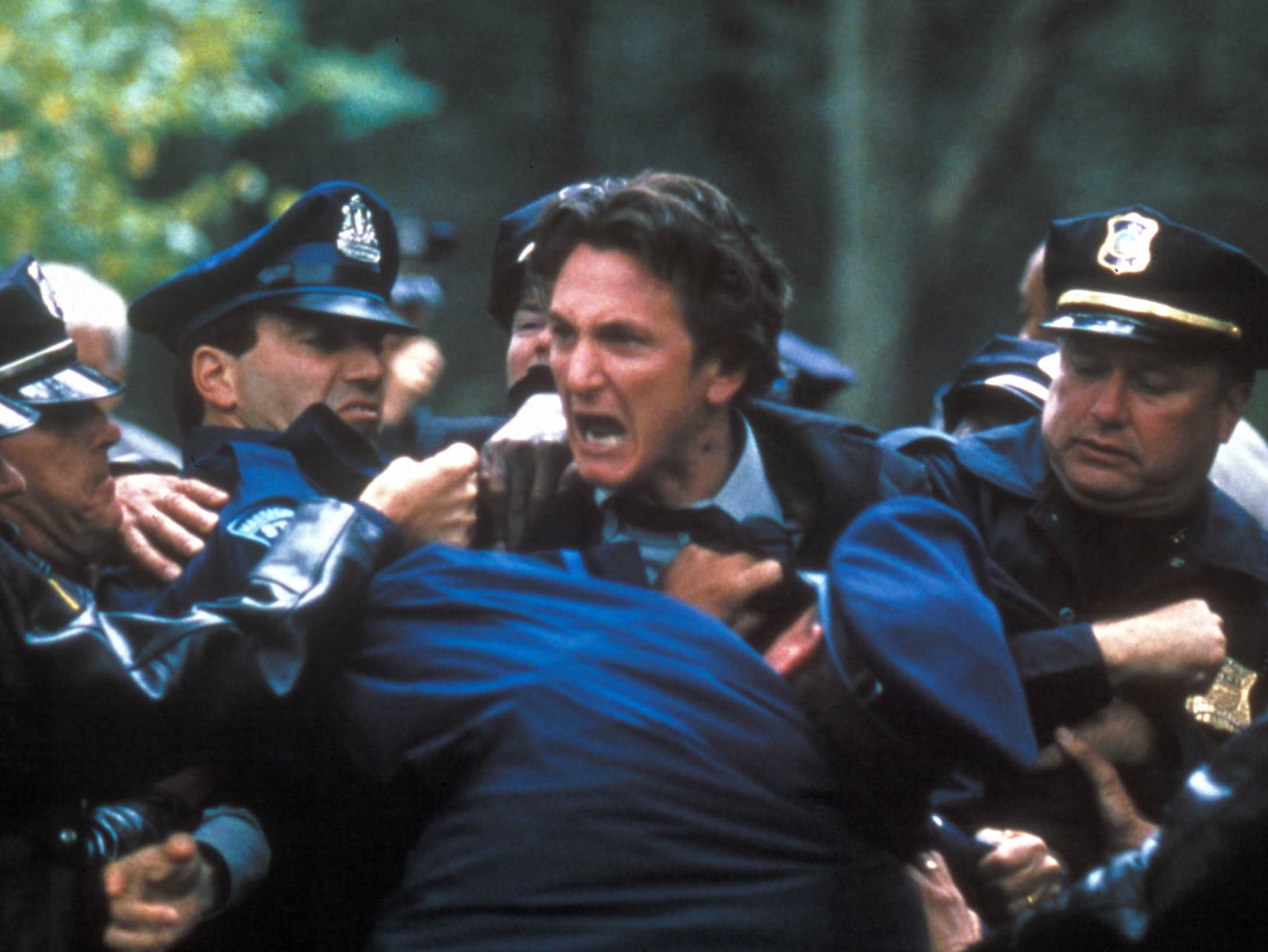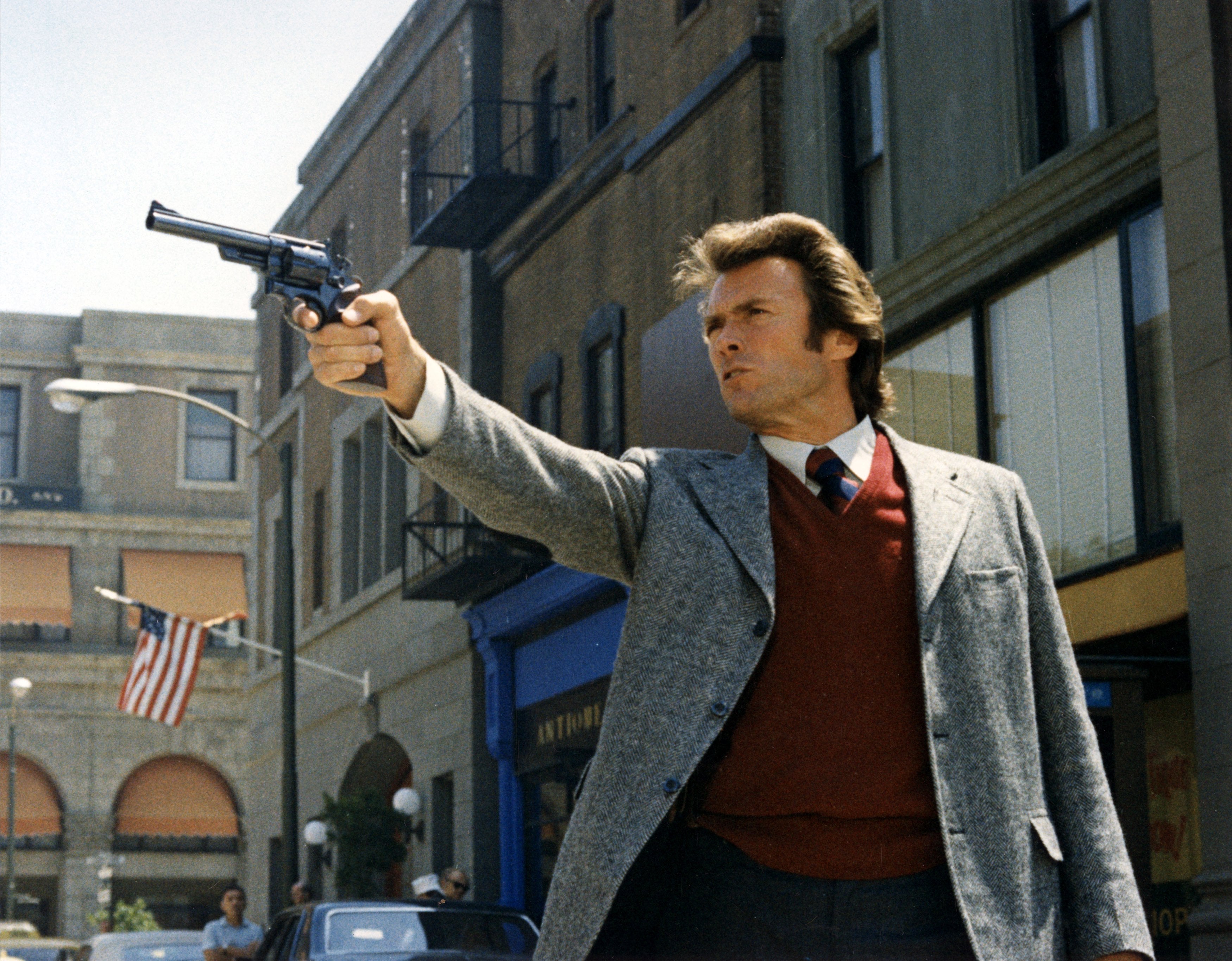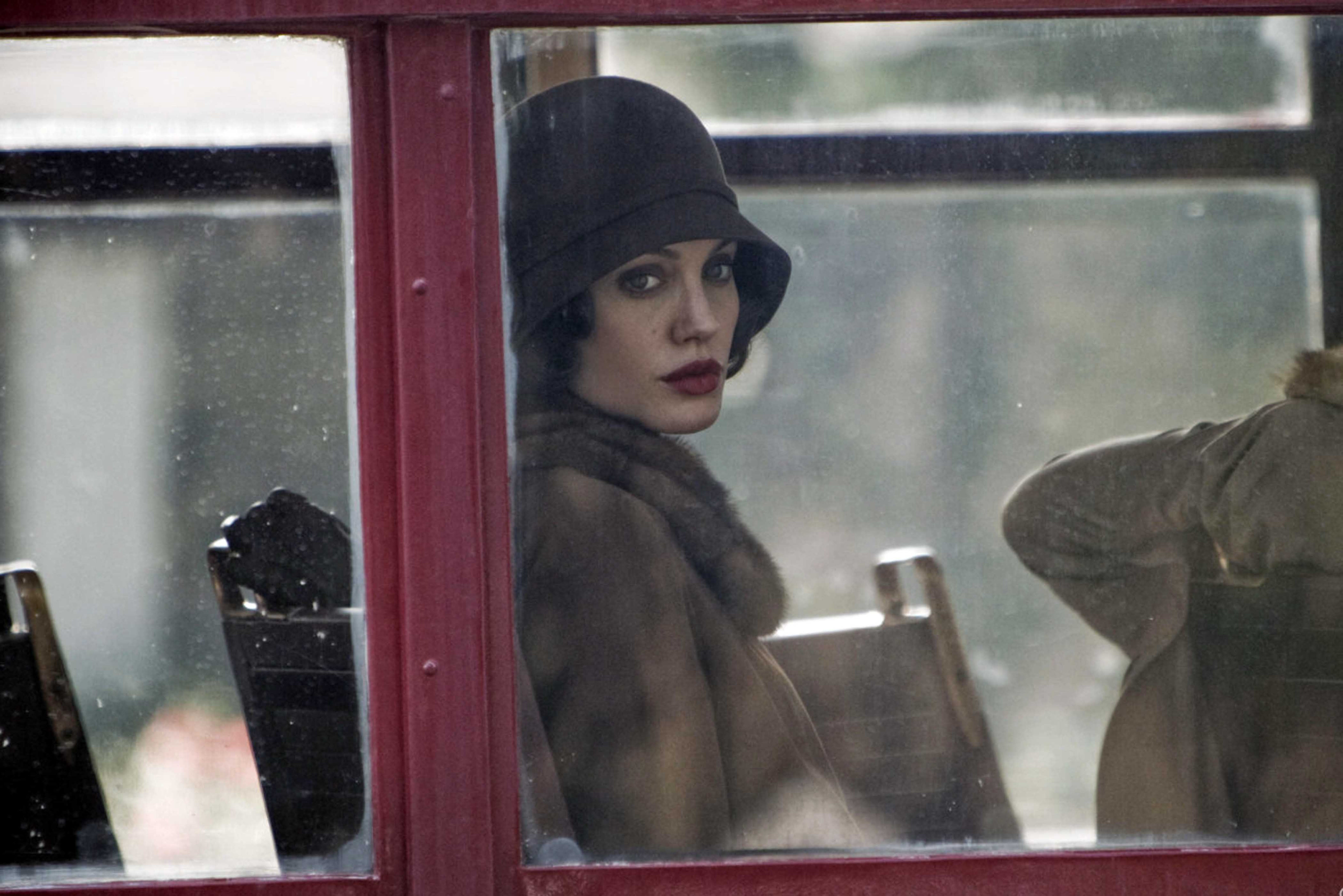Mystic River at 20: How Clint Eastwood took on the dark side
With the 20th anniversary of ‘Mystic River’ next year, Geoffrey Macnab looks beyond Eastwood’s ‘Dirty Harry’ persona, and says, the filmmaker was prepared to venture into areas where other directors were far too terrified to tread

You don’t generally turn to Clint Eastwood for subtlety or moral complexity. He is best known for making films about heroes and anti-heroes. Whether as Dirty Harry in Don Siegel’s 1971 film or the man with no name in Sergio Leone’s “Dollars Trilogy” of Spaghetti Western films, his most famous roles on screen have been as vengeful cops or vigilante cowboys. As a director, he has often told stories featuring American everyman types; the courageous airline pilot “Sully” in his 2016 film of the same name and the patriotic and heroic US Marines in Flags of Our Fathers (2006), or about the country’s more shady figures, such as twisted FBI head J Edgar Hoover, played by Leonardo DiCaprio, in the 2011 biopic, J. Edgar.
That is why Mystic River (2003) seems such an anomaly in Eastwood’s filmography. The Boston-set movie is a study of guilt, dread, and ambiguity. Its main characters are all deeply flawed and haunted by their own past failures and missteps. For once in an Eastwood film, most of the violence takes place off-screen. Nonetheless, this ranks as surely the director’s darkest, most disturbing feature. It won two Oscars. Sean Penn picked up Best Actor for his fiery performance as the small-time criminal Jimmy Markum who takes the law into his own hands after his 19-year-old daughter is killed. Tim Robbins won Best Supporting Actor as Jimmy’s childhood friend, Dave Boyle, who was kidnapped and sexually abused as a kid.
Mystic River was back in the news recently when Penn gave one of his two Oscars – he won another for Milk in 2008 – to the Ukrainian president Volodymyr Zelensky in a gesture of solidarity with Ukraine during its ongoing war with Russia. With its 20th anniversary fast approaching, the film is bound to receive yet more attention in the coming months. So where does it stand in the Eastwood canon?
“Eastwood fits it all together with a masterful economy and furnishes his own atmospheric score for good measure,” The Independent wrote in its review, observing that “this serious, grown-up piece of work suggests that his film-making may be on the verge of a late bloom”.
US critics were even more enthusiastic. Rolling Stone called it a “movie of startling power and intimacy”. The New York Times hailed “a rare American movie that aspires to – and achieves – the full weight and darkness of tragedy”.
However, detractors found Mystic River to be deeply melodramatic. It aspires to be a contemporary, blue-collar equivalent to one of those Greek tragedies in which the protagonists are doomed before they even start. They can’t escape their pre-ordained fates. As Eastwood put it, they’re “on a train you can’t get off”. The director’s critics, though, saw the film as an exercise in extreme manipulation. Brian Helgeland’s screenplay, adapted from Dennis Lehane’s novel of the same name, relies heavily on coincidence. There is an intensely self-conscious quality to some of the performances as the actors try to convey grief and trauma. The film makes the streets of downtown south Boston seem as misty and sinister as the East End of London in some 19th century Victorian potboiler.
It’s easy to understand why Warner Bros was so wary about financing the film in spite of the extraordinary cast Eastwood had assembled; it included Laura Linney, Marcia Gay Harden, Laurence Fishburne, and Kevin Bacon, as well as Penn and Robbins. The director was dealing directly with child abuse, “one of the most hideous crimes we have on the planet”, as he described it.
Who on earth would want to go and see such a film? That’s where the narrative sleight of hand comes in. Eastwood had realised that audiences were ready to accept films with grim and sordid subject matter, as long as they had compelling plots to cling to. He had recently made his OAP astronaut yarn Space Cowboys (2000), one of his most lightweight efforts. Now, he was taking audiences on a very different, far more gruelling journey. For them to accompany him, he needed to provide them with a vivid, thriller-like storyline that had recognisable characters, and suspenseful elements.
Don’t get in the car with the strange men. That’s what every viewer will instinctively feel watching those supremely creepy scenes which open the movie. Three kids from the same south Boston neighbourhood are playing hockey. Sean, Dave and Jimmy are firm friends. A couple of tiny, seemingly throwaway incidents are going to transform their lives. First, they lose their ball when it rolls into the sewer. Then, as they try to retrieve it, they spot some wet cement on the pavement and write their names in it. That’s when the black car appears. The driver (John Doman) tells them off for destroying “municipal property”. They assume he’s a plain-clothes cop. One of the boys, Dave, climbs inside the car. The moment he does so, his life is changed forever. He’s about to be taken away, locked in a cellar for several days, and sexually abused. He is being dragged down into the world of the wolves and the vampires.

Gradually, we realise the extent of the harm that Dave has endured. He emerges as “damaged goods” 20 years later, when he is a father himself. Dave is an inhibited, shambling figure still tormented by his childhood memories.
Mystic River is full of the kind of symbol-laden, sliding doors scenes you’re more likely to find in portentous European art house films by directors like Krzysztof Kieslowski – such as his 1987 picture Blind Chance and The Double Life of Veronique in 1991 – than in Hollywood crime thrillers. It’s not just the fateful moment Dave gets in the car in with the abusers. There’s an equally fraught scene in which Jimmy (Penn) says a casual goodbye to his beloved daughter Katie (Emmy Rossum) as she leaves the house to go for a night out with her friends. Eastwood holds the final shot of her in the doorway for a small eternity. “Later,” he says to her. “Later,” she says back to him – but the long pause makes us suspect immediately that he will never see her again.
Mystic River has many of the trappings of traditional Hollywood detective pictures. The two cops Sean (Bacon) and Whitey (Fishburne) investigate the murder of the girl in painstaking fashion, narrowing down the suspects, making them take lie detector tests, and sifting through the forensic evidence. The whole point of the movie, though, is nothing can end tidily. There isn’t a single perpetrator or victim. In the distorted, nightmarish world that Eastwood conjures up, a grief-stricken father might turn out to be a killer himself. An abused kid might grow up with a very violent streak. Everyone’s actions are influenced by what they have suffered in the past. People have an uncanny knack of misinterpreting the behaviour of their friends and loved ones. They’ve all endured loss and bereavement. As he investigates his childhood pals, the cop (Bacon) himself is dealing with the break-up of his marriage. He has a child whose name he doesn’t even know.
One of the film’s best performances comes from Marcia Gay Harden as Dave’s wife who becomes increasingly more paranoid and suspicious about his behaviour. Her actions, like those of everyone else, rebound disastrously.

Some of the set pieces here are very laboured. The scene in which Penn and Robbins sit on a balcony and Penn talks about his inability to cry feels very contrived. Nonetheless, you can understand why the actors won their Oscars. Penn plays Jimmy with a mix of braggadocio, pathos, and bewilderment that is ultimately very affecting. He’s arrogant but also confused and insecure. Robbins’s Dave is a little like Lennie in Of Mice and Men, a lumbering, amiable, but haunted figure who doesn’t know his own strength.
The film makes references to the Catholic Church. One of Dave’s abusers appears to be a priest. The killing of the teenager takes place on the night before one of Jimmy’s younger children is about to have her first communion. As later films like 2015’s Spotlight would show, Boston had a long and shameful history of child sex abuse by priests.
After Mystic River, Eastwood continued in a similar vein with some other equally sombre features including Million Dollar Baby (2004) and Changeling (2008). In the former, the female boxer played by Hilary Swank, who also won an Oscar, ends up a quadriplegic and desperate to die. In the latter, a single mother (Angelina Jolie) is left distraught when her child is abducted. Her dismay is compounded when she gets her son back – but it’s the wrong boy.
These films were made in a period just before superhero movies became all-powerful at the box office. Despite the dark subject matter, Eastwood’s grittier dramas were surprisingly successful. Mystic River did what the trade papers call “boffo” business when it was launched in the US. It was released initially in only a dozen theatres but the screen averages were, in the words of Variety, “mind-bending”. It went on to gross close to $160m (£131m) worldwide.

Twenty years on, it’s all but inconceivable that a film like this could post those numbers. A streamer might take a risk on the material, but you would be very unlikely today to find a downbeat drama based around child abuse and the murder of a teenage girl in your local multiplex, alongside Avatar or the latest Black Panther.
Eastwood is now in his 90s. You can’t imagine him directing or starring in many further movies after last year’s Cry Macho. In spite of its Oscars, Mystic River isn’t regarded by his fans as one of the highest points in his astounding 60-year career as a director and star. It’s far too perverse and macabre for that. He’ll be remembered primarily for the westerns and vengeful cop movies. Nonetheless, it’s hard not to feel nostalgic for what the film represents, namely, an era in the not-so-distant past when deeply layered, character-driven dramas could still find sizeable mainstream audiences…as long as they had his name on the credits.
Eastwood may indeed be one of Hollywood’s most manipulative storytellers but look beyond his Dirty Harry persona and you’ll find a filmmaker prepared to venture into areas where other directors were far too terrified to tread.
‘Mystic River’ is available on Amazon Prime






Join our commenting forum
Join thought-provoking conversations, follow other Independent readers and see their replies
Comments